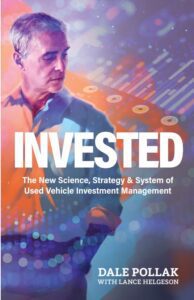During his general session at Access: Innovation, Cox Automotive chief economist Jonathan Smoke confirmed news that was on the minds of many dealers at the event—autoworkers would, in fact, go on strike at Ford, General Motors and Stellantis factories.
The possibility and potential impacts of a strike came up multiple  times in my conversations with dealers at our opening reception and during breaks between sessions. Smoke’s afternoon session arrived when it seemed certain autoworkers would walk off the job at factories operated by not just one but all three Detroit-based automakers.
times in my conversations with dealers at our opening reception and during breaks between sessions. Smoke’s afternoon session arrived when it seemed certain autoworkers would walk off the job at factories operated by not just one but all three Detroit-based automakers.
Several dealers with Chrysler dealerships viewed the news as a positive, at least in the short term. A 30-day strike, which Smoke outlined as the consensus view of analysts and economists, would at least halt the near pile-up of new vehicle inventory at the dealers’ stores and potentially reduce the six-figure monthly flooring expense they now carry.
The strike’s ripple effect on used vehicles, Smoke noted, would depend on each OEM’s current supply of new vehicles. If a strike extends four to six weeks, dealers will likely see yet another round of used vehicle value and price appreciation as new vehicle supply dwindles.
He also highlighted the current over-supply of electric vehicles (EVs) and vehicle affordability challenges as key “themes that are going to be important not just in the next few years but the next decade.” On affordability, Smoke notes that as lenders have become less aggressive with loan terms as a means to handle affordability challenges for buyers.
Dealers here also found keynote speaker Jason Dorsey’s presentation. He highlighted that no other industry, outside of healthcare, serves multiple generations of customers and employees like dealers. In particular, the rise of Gen Z as the fastest growing segment of consumers and employees will likely require dealers to change how dealers operate on several fronts:
Frequency and stability of compensation: Gen Z employees, Dorsey noted, prefer stability and they are “not good” with the variable comp plans in place at many dealerships. Their perspective’s been shaped by companies like Uber, which offer the opportunity to work today and get paid today. Some will take lower-paying jobs to access their money faster and keep up with their bills. If dealers want their job descriptions to resonate with Gen Z employees, they need to tout a specific salary range, scheduling flexibility and the availability of benefits, with free mental health care ranking as a top preference.
Dorsey also noted that Gen Z employees need specific examples of the performance you expect and more frequent communication than Gen X and Baby Boom leaders often offer. For Gen Z, “if your boss is not talking to you, you’re doing something wrong.”
All in all, it was a memorable first day at Access: Innovation. We’ll be wrapping up tomorrow, and I’ll Day 2 highlights here.
The post Access: Innovation Day 1: Take-Aways from Two General Sessions appeared first on Dale Pollak.





